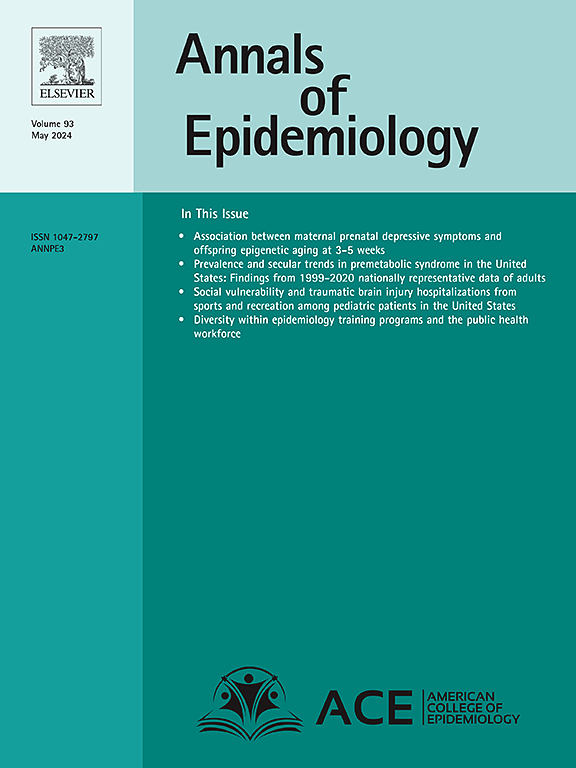睡眠时间、就寝时间规律和周末补觉与年龄相关性听力损失的关系:一项基于人群的横断面研究。
IF 3
3区 医学
Q1 PUBLIC, ENVIRONMENTAL & OCCUPATIONAL HEALTH
引用次数: 0
摘要
目的:年龄相关性听力损失(ARHL)影响老年人的生活质量和认知能力,但其与睡眠模式的关系尚不清楚。本研究探讨了韩国人群中ARHL与睡眠时间、周末补眠(WCS)和就寝规律之间的关系。方法:使用韩国国家健康与营养调查(KNHANES, 2021-2022)对6797名年龄≥40岁的成年人的数据进行分析。睡眠模式通过自我报告的问卷进行评估。听力学将ARHL分为轻度(26-41 dB)或中度及以上(bb0 -41 dB)。泊松回归模型检验了睡眠特征和ARHL之间的关系,并对混杂因素进行了调整。结果:WCS(≥1h)与轻度ARHL(校正患病率比= 0.58,95% CI: 0.44-0.76)和中度ARHL (aPR = 0.79, 95% CI: 0.63-0.98)的较低患病率显著相关。在中年人和男性的分层分析中,这些关联仍然很明显(p-相互作用< 0.01)。相反,调整后的睡眠时间和就寝时间规律与ARHL无显著相关性。结论:我们的研究结果表明,WCS可能与ARHL患病率较低有关,特别是在中年人和男性中,这突出了睡眠行为在听觉健康促进中的潜在作用。本文章由计算机程序翻译,如有差异,请以英文原文为准。
Association of sleep duration, bedtime regularity, and weekend catch-up sleep with age-related hearing loss: A population-based cross-sectional study
Purpose
Age-related hearing loss (ARHL) impacts quality of life and cognition in older adults, but its link to sleep patterns remains unclear. This study explores associations between ARHL and sleep duration, weekend catch-up sleep (WCS), and bedtime regularity in a Korean population.
Methods
Data from 6797 adults aged ≥ 40 years were analyzed using the Korea National Health and Nutrition Examination Survey (KNHANES, 2021–2022). Sleep patterns were assessed via self-reported questionnaires. ARHL was classified as mild (26–41 dB) or moderate and above (>41 dB) using audiometry. Poisson regression models examined associations between sleep characteristics and ARHL, adjusting for confounders.
Results
WCS (≥1 h) was significantly associated with a lower prevalence of both mild (adjusted prevalence ratio = 0.58, 95 % CI: 0.44–0.76) and moderate ARHL (aPR = 0.79, 95 % CI: 0.63–0.98). These associations remained robust in stratified analyses among middle-aged adults and men (p-interaction < 0.01). In contrast, sleep duration and bedtime regularity showed no significant associations with ARHL after adjustment.
Conclusion
Our findings indicate that WCS may be associated with a lower prevalence of ARHL, particularly in middle-aged adults and men, highlighting the potential role of sleep behavior in auditory health promotion.
求助全文
通过发布文献求助,成功后即可免费获取论文全文。
去求助
来源期刊

Annals of Epidemiology
医学-公共卫生、环境卫生与职业卫生
CiteScore
7.40
自引率
1.80%
发文量
207
审稿时长
59 days
期刊介绍:
The journal emphasizes the application of epidemiologic methods to issues that affect the distribution and determinants of human illness in diverse contexts. Its primary focus is on chronic and acute conditions of diverse etiologies and of major importance to clinical medicine, public health, and health care delivery.
 求助内容:
求助内容: 应助结果提醒方式:
应助结果提醒方式:


